Master of Science in Nursing – Administration and Management
Meet the need for forward-thinking nursing leaders with an MSN.
We’re building nursing industry leaders with our MSN Administration and Management specialization. Today’s nurses perform increasingly complex roles, requiring advanced knowledge and specialized capabilities. Nurse Executive; Health Coordinator; Nurse Manager—Aspen prepares registered nurses for all kinds of advanced leadership roles. The MSN Administration and Management program equips students with practical knowledge of legal, ethical, and cultural issues in healthcare; contemporary management theory and application; a focus on hospital management, accounting, and other economic topics; preparation to work in administrative settings; understanding of nurse theory and specialized skills; and interprofessional practice in complex healthcare environments.
So You Want an MSN in Nursing Administration?
What Can You Do With an MSN In Nursing Administration?
Aspen MSN Administration and Management graduates can:
- Create budgets, approve spending, and manage overall finances
- Control health care quality and safety
- Perform strategic planning, fiscal management, and evaluation of outcomes
- Motivate and manage nursing staff and assistant administrators
- Respond to challenges and trends to lead healthcare innovations
- Focus on responsible use of resources
- Incorporate contemporary technology, practice, and ethics into patient care
- Transform communities with evidence-based, outcome-oriented leadership
- Engage in scholarly activities to support nursing innovations
- Consult and collaborate with teams and direct health care systems
The Master of Science in Nursing program at Aspen University is accredited by the Commission on Collegiate Nursing Education.
Enjoy Flexibility– 12 online courses with program start dates every 2 weeks
Choose Where You Learn– Online courses with a local practicum
Affordable Monthly Payments
Focus on Your Passion– Choose your practicum project
Practicum courses are performed within a clinical practice or academic setting allowing students to apply concepts under the direct supervision of a Preceptor. Aspen’s Office of Field Experience offers additional support for MSN students during the practicum process.
Aspen also offers online RN to MSN programs for nurses without a BSN degree.
Why More Nurses Are Choosing Aspen


MSN Administration and Management Courses
Aspen’s MSN curriculum features 12 courses designed to equip you with advanced nursing skills. Taught by experienced nurse educators from diverse healthcare settings, you’ll have the opportunity to apply new knowledge directly to your practice through the integration of your MSN practicum project.
View the course schedule for this program: MSN Administration and Management Degree Plan
-
N502 - Health Care Systems
-
N522 - Modern Organizations and Health Care
-
N512 - Diverse Populations & Health Care
-
N520 - Legal and Ethical Issues in Health Care
-
N537 - Health Care Informatics
-
N538 - Advanced Health Care Informatics
-
N542 - Health Care Finance and Economics
-
N547 - Health Care Strategic Management and Planning
-
N508 - Theory and Research
-
N550 - Nursing Administration Practicum I
-
N586AM - Nursing Practicum
-
N599 - Nursing Capstone
This graduate-level course introduces students to the historical development, structure, operation, and current and future directions of the major components of the American health care delivery system. It reviews the historical evolution of the health care system's features and examines the ways in which health care services are organized and delivered, the influences that affect health care public policy decisions, factors that determine priorities for the allocation of health care resources, and the relationship of health care costs to measurable benefits. The course enables students to assess the role of organized efforts to influence health policy formulation, and the contributions of medical technology, research findings, and societal values on our evolving health care delivery system.
3 CreditsRequired Books
This graduate-level course contains both theoretical content as well as an examination of processes involved in human behaviors in the healthcare organizational setting. Students will become more aware of the dynamics of group processes and acquire skills (i.e., motivation and leadership skills, conflict management, negotiation skills, etc.) to improve their group performance. This course examines (1) individual behaviors, (2) leadership, and (3) intrapersonal and interpersonal issues. Specific areas included in this course are diversity, perceptions and attitudes, communications, decision-making, power, leadership, motivation, stress and conflict management. Additionally, we will discuss strategies for facilitating learning experiences in a multicultural environment.
3 CreditsRequired Books
This graduate-level course provides an in-depth study of cultural diversity, delineating ethnocultural congruent health-care practices in a pluralistic society. Assessment, planning, and interventions for health promotion and maintenance, illness and disease prevention, health restoration, and health policy are explored. The course examines the meanings of health and illness across ethnocultural groups and communities.
3 CreditsRequired Books
This graduate-level course focuses on the legal and ethical rights, responsibilities, and obligations of the practicing nurse in a changing health environment. It is intended to provide graduate nursing students with the theory, knowledge and application necessary to deal with pressing legal and ethical issues in nursing practice. Learners will develop a framework for working through increasingly complex legal and ethical issues that affect nurses. This framework and broadened perspective will help practitioners recognize and respond to dilemmas within diverse health care settings and nursing roles. This course will provide an overview of regulatory action and the legislative and judicial processes, enabling learners to become familiar with changes affecting the health care system such as patient rights, technological advances, and managed care. Within an ethical framework, ethical and professional issues affecting the individual, the practice of professional nursing, and the profession will be explored.
3 CreditsRequired Books
This graduate-level course covers the history of healthcare informatics, current issues, basic informatics concepts, and health information management applications. Health informatics is the intersection of information science, computer science, and health care. It deals with the resources, devices, and methods required to optimize the acquisition, storage, retrieval, and use of information in health care settings. Health informatics tools include not only computers but also clinical guidelines, formal medical terminologies, and information and communication systems. This course focuses on the application of health care informatics from a nursing perspective. Based on the Foundation of Knowledge model, this course demonstrates how nursing and healthcare informatics relate to knowledge acquisition, knowledge processing, knowledge generation, knowledge dissemination, and feedback, all of which build the science of nursing.
3 CreditsRequired Books
This course will build on previous informatics knowledge to apply problem-solving skills to complex nursing informatics problems. Healthcare organizations face many issues that will be covered in this course including interoperability, integration, health information exchange, and electronic health records. Applying successful solutions through the lens of quality, meaningful use, education, public health and evidence-based practice will be emphasized.
3 CreditsRequired Books
This graduate-level course will help nurse managers to understand and implement processes for management of financial issues in health care. Finance is a complicated and frequently confusing part of providing healthcare in the United States. Regulatory bodies, multiple payer sources, and complicated reimbursement schedules are just of few of the things that contribute to the state of healthcare finance in the 21st century. This course will introduce the concepts of reimbursement based on meeting the needs of the client rather than meeting the bottom line. Budgetary considerations, cash flow, cost to benefit analysis, and salaries are discussed in a forthright and comprehensive manner. Understanding how clients view healthcare and then understanding the role of healthcare payment will assist nursing leaders to make quality decisions that will benefit the patient and the facility. This course will assist the nurse manager to implement financial considerations into quality patient care.
3 CreditsRequired Books
This graduate-level course provides in-depth coverage of strategic thinking, strategic planning, and managing the strategic momentum. This course demonstrates how strategic managers can become strategic thinkers with the crucial skills to evaluate the changing environment, analyze data, question assumptions, and develop new ideas. Students will be introduced to methods to develop and document a plan of action through strategic planning and illustrate how, as managers attempt to carry out the strategic plan, they evaluate its success, learn more about what works, and incorporate new strategic thinking into future planning. Diverse strategic situations will be presented in case study format, which enhances the applicability of the concepts.
3 CreditsRequired Books
This graduate-level course in theory and research for advanced nursing practice is designed to develop and refine the knowledge and skills necessary to critique theory and research from nursing and related fields. The focus of this course is on the examination of the research process with applicability to advanced nursing practice. Emphasis is placed on the critique, evaluation, and utilization of nursing and related research that applies to advanced nursing practice and a comprehensive approach to care. Ethical and technological aspects of scholarly inquiry are explored. This course supports the development of the research design, theoretical framework, methods of analysis, and creating an abstract for the capstone project proposal.
3 CreditsRequired Books
This practicum experience focuses on the analysis, synthesis, and application of principles and theories related to nursing administration and leadership. It is designed to provide the student with the opportunity to integrate theory in a context of the nurse executive’s role. During the precepted practicum experience, students observe, analyze, and participate in the role of the nurse executive in a designated health care delivery system. Experiences are designed and arranged by the student and approved by the faculty to provide executive level exposure to nursing administration operations and local business health policies and procedures. Within the asynchronous classroom environment, students will explore concepts pertinent to enactment the nurse executive role, with an emphasis on application of leadership/management theory, effective supervision, problem solving, organizational theory and structure, personnel and operations management, and communication. This course requires 40 hours of practicum experience. This course must be completed successfully before beginning N586AM.
3 CreditsRequired Books
This graduate-level course focuses on the Administration and Management specialist role through the application of theoretical concepts and strategies for a selected audience and the implementation of a quality improvement project in a health-related setting. Emphasis is on effective communication and sensitivity to the varying needs of the audience. The Administration and Management specialist role will be analyzed and applied in collaboration with a master’s prepared nurse preceptor with experience in this specialty. Evidence-based strategies will be developed into a comprehensive project to engage learners in active learning and implemented to meet mutually determined outcomes. The student will complete an annotated bibliography and the project activities might include but are not limited to: creating a toolkit of resource references, developing a presentation, creating a survey to measure satisfaction with activity, attending professional meetings, writing a publishable article, presenting a topic to patients, creating a webinar, delivery of training modules, developing software to meet a need, developing an advocacy agenda or tool, or proposing a change in practice, process or procedure. This course requires a total of a minimum of 80 hours of Administration and Management practicum experience within a practice environment and must include inter-professional collaboration. Finally, the student will complete the MSN program’s Comprehensive Examination during module seven of this course.
3 CreditsRequired Books
The purpose of this individualized learning experience is to enable you to develop an original comprehensive nursing research project on a topic of professional or personal interest. This project-based course is intended to enable you to research, design and develop a substantial original applied project of your own authorship. This project is intended to encourage the application of theories, principles, and processes that you have studied in the Aspen graduate courses to an actual nursing related problem or issue of interest and relevance to you in your professional activities. PLEASE NOTE: Students cannot start the Capstone concurrently with the Practicum, as the Capstone is based upon the data collected from the Practicum.
3 CreditsRequired Books
For more information about the program, see the Academic Catalog.
“My experience at Aspen University, for both undergraduate and graduate programs, was flawless. My Academic Advisors were fantastic, guiding me every step of the way and providing steadfast support. Whenever I had questions, they always had answers. I am deeply grateful for the support from both my family and the Aspen family, and I look forward to future success in my career.”
Steven P.
MSN Administration & Management, graduated March 2024Cost & Time to Completion
The Best Fit for Working Nurses
We understand the difficulties in pursuing your MSN when you have a demanding work schedule. The 8-week courses at Aspen University allow you to complete your program in 2 years.
Our Monthly Payment Plan Makes Us Different.
Paying for your MSN shouldn’t be complicated. Our Monthly Payment Plan makes it easy for working nurses to finance their MSN program.
Pay $415 per Month
The monthly payment plan is a private education loan with a 0% fixed rate of interest (0% APR) and no down payment. Each month you’ll make one payment of $415 for 47 months.
Tuition Rates
| $17,100 | Tuition |
| $2,250 | Fees |
| $1,800 |
Estimated
Textbook
Costs
|
| $21,150 | |
Other Ways to Finance Your MSN

Students who have served, or are currently serving in the United States Military and their legal spouses are eligible to receive a Military Affiliation Discount from Aspen University.

Aspen University is currently approved by the U.S. Department of Education to offer federal student aid for the MSN program.

Aspen University maintains employee tuition discount partnerships with a large and growing number of organizations. Tell your enrollment advisor where you work and ask them to check for you prior to enrolling.

Aspen offers several payment plans for students to fund their education.
Earn Your MSN with Confidence

The baccalaureate degree program in nursing, the master’s degree program in nursing, and the Doctor of Nursing Practice program at Aspen University are accredited by the Commission on Collegiate Nursing Education.
Vanessa B.
MSN Administration and Management, graduated August 2023Admission Requirements

Application – A completed application; Aspen does not charge an application fee

Registered Nurse Licensure – Current, unrestricted licensure as a registered nurse in the United States, a US territory, or Canada. Registered nurses licensed outside of these areas are not eligible.

Bachelor of Science in Nursing –Official Transcript demonstrating a bachelor’s degree in nursing from an institution that is accredited by a CHEA recognized accrediting body or an international equivalent; applicants must have earned at least a 2.5 GPA in their BSN program (see Catalog for more information)

Nursing Experience – A minimum of one year of nursing experience completed within the past five years.

Government-Issued Photo Identification – Identification must be valid, current, and legible.
Career Outlook
Nursing is a unique career field that provides opportunities in a variety of settings and patient populations. The U.S. Bureau of Labor Statistics identifies that the job outlook from 2022-2033 is 6% faster than average with an anticipated 194,500 nursing jobs projected annually.
The American Association of Colleges in Nursing (AACN) reported that 82% of new MSN graduates had a job offer at the time of graduation and 95% of MSN graduates had a job offer within 6 months of graduation.
The nurse administrator or manager provides leadership, guidance, and coaching to nurses that are aligned with the facility’s mission, vision, and goals. Nurse administrators and managers are employed in a variety of settings across patient populations.
Average Annual Salary for MSN-prepared Nurses
$120,870
Data pulled from NursingProcess.org in Fall 2024. Salary can vary widely depending on geographical location and role.
MSN Frequently Asked Questions
-
What is the MSN degree?
-
What are the differences between the RN to MSN program and the MSN program?
-
Is Aspen’s MSN program accredited?
-
Can I finish my MSN degree online?
-
What specialties are offered in the MSN degree program?
-
Can multiple specialties within the MSN program be completed simultaneously?
-
Does Aspen help with locating a preceptor and site to complete hours?
The Master of Science in Nursing degree is a graduate degree that prepares nurses for specialties in their selected area of healthcare.
The RN-MSN program is available for RNs who do not hold a bachelor of science degree in nursing (BSN). The MSN direct-entry program is available for RNs who have obtained their BSN degree.
Yes, the MSN program is accredited by the Commission on Collegiate Nursing Education.
Yes, Aspen’s MSN degree programs are completed online. There is a 120-hour practicum course associated with each specialty that requires a preceptor supervisor.
Aspen offers MSN degrees specializing in Administration and Management, Forensic Nursing, Informatics, Nursing Education, and Public Health.
No, students can only complete one specialization.
Many students utilize their workplace to identify their preceptor and site location. Aspen’s Office of Field Experience (OFE) is also available to support students with obtaining approval from their preceptor, site, and collaborating to identify alternative locations as needed.


